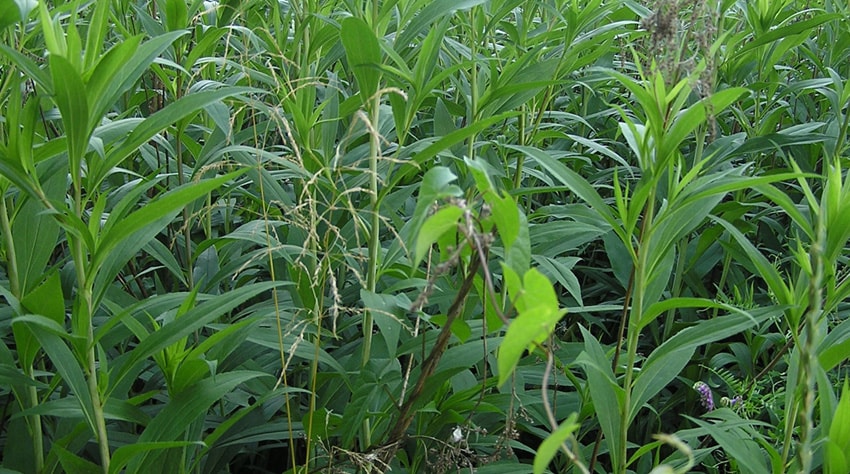Course Title: Weed Control BHT209
Weed Control BHT209

Become skilled in weed management. Learn to identify and effectively control more than 100 weeds, to design management strategies and programs and apply control techniques efficiently and safely. Here, you learn about both chemical and non-chemical control methods (mulching, burning, mowing), the use of spray equipment and safety procedures which should be followed.
Course Structure for Weed Control BHT209
There are 7 lessons:
1 Weed Identification:
- Introduction
- Plant Taxonomy: Botanical/Horticultural Nomenclature, The Binomial System, Botanical Classification, Plant Families and Species, Hybrids, Varieties and Cultivars
- Some Common Groups of Weeds: Grasses, Onion Family Weeds, Daisy Weeds, Thistles, Cabbage Family, Pea Family (Fabaceae)
- Characteristics of Selected Common Weeds – A – Z
- Resource Guide: Reference Books, Organisations, Government Departments, Garden Clubs, Farmers Groups and ‘Friends of’ Groups, Magazines and Journals, Commercial Businesses/ Companies, Online Resources
- Set Reading
2 Weed Control Methods:
- Weed Control: Steps in Controlling Weeds, Ways to Control Weeds, Grazing
- Types of Weed Problems: Fence lines and Borders, Weeds at the Base of Trees, Weeds in Garden Beds, Weeds in Hard Surfaced Areas, Plants That Go to Seed, Vigorous, Invasive Creepers, Suckers, Underground Rhizomes, Tubers, Bulbils and Corms, Weeds in Lawns, Poisonous Plants, Noxious Weeds, Environmental Weeds, Plants to Avoid
- Profiles of Some Common Weeds: Bamboo, Bindii, Blackberry, Bracken Fern, Capeweed, Clover, Dandelion, Dock, Gorse, Grasses, Lantana, Nettle, Oxalis, Singapore Daisy, Thistles
- Mulching: Some Popular Mulches
- Soil Treatment to Control Plant Problems: What is Controlled, Fumigants
- Physiological Effects
- Definitions of Pesticide Terms – A – Z
3 Chemical Weed Control:
- Types of Herbicide Chemicals: Aliphatics, Amides and Anilides, Benzoics, Bipyridyliums, Carbamates and Carbanilides, Dinitroanilines, Diphenyl Ethers, Nitriles, Phenoxys, Thiocarbamates, Triazines, Ureas and Uracils, Other Organic Herbicides, Inorganic Herbicides
- Comparative Toxicities
- Weedicides for the Home Garden
- Set Reading
4 Weed Control In Specific Situations:
- Weeds in Turf: Methods of Controlling Weed Problems in Turf
- Turf Weedicides (Herbicides): Dicamba, Mecoprop (Mecoprop-P: MCPP), 2,4-D, Bromoxynil, MCPA
- The Law in Relation to Chemical Use
- Commonly Used Commercial Formulations
- Weeds in Plant Nurseries: Weed Control in Greenhouses, Recommended Weedicides for Use in a Nursery
5 Safe Chemical Application:
- Safety Rules for Using Chemicals
- Safely Storing Chemicals
- Safely Mixing Chemicals
- Using Chemicals: Agitation
- Cleaning up and Disposing of Chemicals
- Basic First Aid in Relation to Chemicals
- In Event of a Pesicide Liquid Spill
- In the Event of a Powder Spill
- Keeping Records: What Information Should be Kept, Recommendation
- Your Spray Machine – Is it Good Enough?: Selection of Pump and Tank, Calibration, Constant Tractor Speed, Watch These Points
- Sprayer Maintenance and Cleaning
- The Effects of Chemicals on Humans and Animals: Acute Poisoning, Chronic Poisoning
6 Non-Chemical Weed Control:
- What Damage is Being Done to the Environment? Soil, Water, Air, Vegetation, Wildlife, Humans
- Biocontrol of Pests & Diseases: The introduction of parasites and predators, Conservation of existing natural enemies, New natural enemies can be developed, Advantages of Bio-control, Disadvantages of Bio-control
7 Developing A Major Weed Control Program:
- Problem Based Learning Project (PBL)
Lesson Aims
- To distinguish between different types of weeds, and identify common weed species, growing in your locality
- To understand the characteristics of different weed control methods
- To be able to explain the use of chemical herbicides to control weeds
- To be able to specify appropriate weed control methods, for different types of situations
- To determine appropriate techniques for the safe application of chemical herbicide in a specific situation
- To be able to explain different non-chemical weed control methods
- To be able to devise appropriate methods for control of weeds, for specific problems, in both the horticultural and agricultural industries
- To be able to determine a detailed weed control program for a significant weed problem
Price: £340
Qualification: Certificate
Estimated Course Duration: 100 hours
Available Learning Methods: Online, USB (+£5) and Correspondence (+£35)
Enrolment Dates: Our courses are self-paced and you can start at anytime
Enrol now and develop your expertise and weaponry in the war against weeds.
This link will open adlonlinecourses.com in a new tab.
Related Posts
As soon as payment has been confirmed you will be able to access your course materials online within 24 hours. Any further correspondence will arrive at your address between 3-4 days.
For any Questions or to Enrol please call 01227 789 649
Tags: control, course, horticulture, weed






